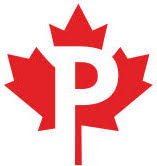
| Name | Value |
|---|---|
| Date of Issue | October 28, 2022 |
| Year | 2022 |
| Quantity | 2,150,000 |
| Denomination |
 PERMANENT™ (P). PERMANENT™ (P).Current monetary value: $0.92. |
| Postal Administration | Canada |
| Condition | Name | Avg Value |
|---|---|---|
| No Prices for stamp | ||








Born on St. Peter’s Reserve, Manitoba, into the Brokenhead Ojibway Nation, Sergeant Thomas (Tommy) George Prince, mm (1915 - 1977), was one of Canada’s most decorated Indigenous non-commissioned officers and war veterans, and a prominent Anishinaabe activist.
In 1940, during the Second World War, Prince enlisted with the Royal Canadian Engineers and trained as a sapper. He later joined the 1st Special Service Force, a joint Canada-U.S. specialized reconnaissance and raiding unit where he gained a reputation for marksmanship, stealth and tracking skills, as well as sheer nerve. His courage and service earned him the Military Medal, Silver Star (U.S.) and nine other decorations, including three (one posthumous) from his two tours of duty in the Korean War. Between the wars, Prince waged a different battle when, as vice-president of the Manitoba Indian Association, he spoke out in favour of abolishing the Indian Act and respecting existing treaties.
The stamp, designed by Blair Thomson | Believe in, features a photo of Prince in his Korean War uniform. The background of northern lights, by Andy Beaver, symbolizes the sky above the Brokenhead Ojibway Nation, where Prince was raised, about 70 kilometres northeast of Winnipeg.
He was a recipient of the Silver Star.
The collectible envelope is cancelled with a legacy cancel, created to mark a true birthplace in a location where no open Canada Post retail outlet currently exists.